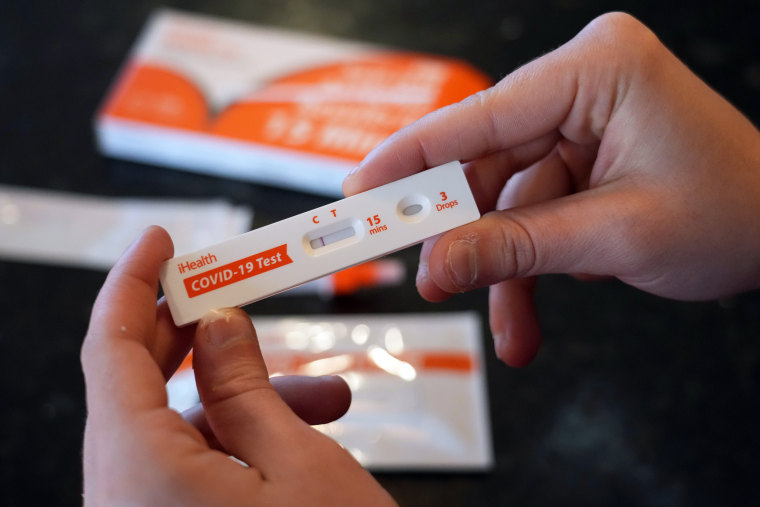The omicron variant wave in the United States triggered a sharp increase in the use of at-home Covid-19 tests, the Centers for Disease Control and Prevention reported Friday.
Researchers compared the use of the at-home tests among people reporting Covid-like symptoms during the delta wave, occurring from August to December, and during the omicron wave, which began in mid-December but has receded over the last month.
Full coverage of the Covid-19 pandemic
They found the use of the tests more than tripled when the omicron variant was spreading rapidly, increasing from an average of 5.7 percent to more than 20 percent among people with symptoms.
While test use surged, the tests weren't used consistently across the U.S. population — it varied by race, age, income or education.
For example, the researchers found that white people were approximately twice as likely to report at-home test use, compared with those who identified as Black.
In addition, adults in their 30s were more likely to report at-home test use than people in their teens and 20s and those ages 75 and older.
At-home test use also increased with higher levels of household income and education — people making more than $150,000 a year and those with a postgraduate degree were the most likely to report the use of at-home tests.
The CDC said the findings underscore the need for reliable and low-cost tests in underserved communities that may have limited access.
Rapid testing kits have become more widely available in the United States in recent months as manufacturers scrambled to meet surging demand.
The federal government began distributing free at-home tests in January, and made another tranche available this month.
However, due to a lack of funding from Congress, the White House has said in recent weeks it will no longer be able to purchase tests to provide to Americans who don't have health insurance.
The report comes as U.S. health officials say they are closely monitoring a subvariant of omicron, known as BA.2, to see whether it causes an increase in cases in the U.S. as it has throughout Europe and other parts of the world.
The subvariant now accounts for nearly 35 percent of new cases in the country, according to CDC estimates.
CDC Director Dr. Rochelle Walensky said at a briefing Wednesday that health officials are seeing small increases in cases in parts of the Northeast, although there isn't any indication yet that they are leading to a rise in severe illnesses or hospital stays.
Follow NBC HEALTH on Twitter & Facebook.

